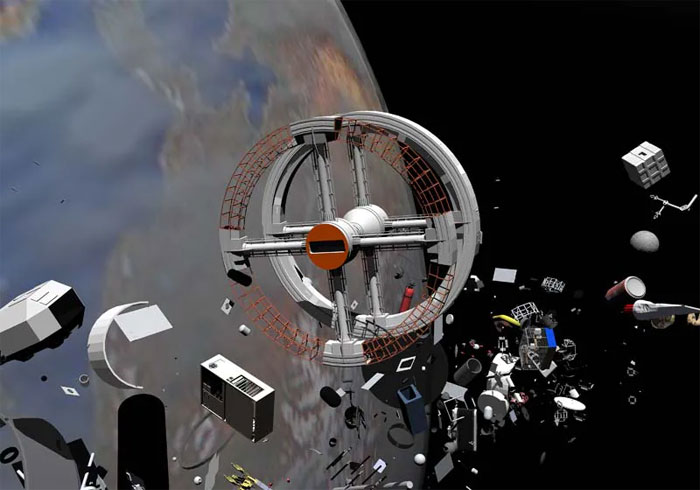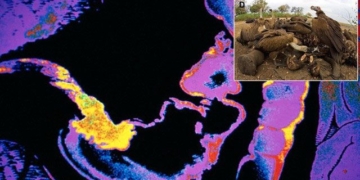The term “satellite” typically refers to an artificial satellite, which is an object created by humans that orbits the Earth. So, what keeps satellites from falling out of the sky? Why is it necessary to launch debris-cleaning satellites into space?
In the past half-century, over 3,000 satellites have followed in the footsteps of the first satellite launched into space. What keeps them floating high above? It is the delicate balance between the speed of the satellite and the force of gravity.
Essentially, satellites are in a constant state of free fall. However, if they travel at the right speed, they will fall at the same rate that the curvature of the Earth moves away from them. This means that instead of being flung out into space or crashing down to Earth, they continue to orbit our blue planet.
Satellites also require regular adjustments to operate smoothly. The gravitational pull of the Earth is stronger in some areas, and satellites can also be influenced by the Sun, the Moon, and even Jupiter.

Space debris poses a danger to thousands of operational satellites.
In addition to gravity, satellites in low Earth orbit, such as the Hubble Space Telescope, can also drift off course due to atmospheric drag.
Satellites must continuously maneuver skillfully to avoid space debris and other objects overhead.
Debris-cleaning satellites launched into orbit
Space debris is a significant threat to thousands of operational satellites and crewed space missions. While spacecraft are protected from impacts, pieces of space debris can still cause substantial damage. In 2009, the first major satellite collision occurred between a defunct Russian satellite and an active American satellite, resulting in the destruction of both.
Such collisions can lead to a cascading effect known as the Kessler Syndrome, resulting in a series of expanding collisions. This could ultimately lead to the formation of an artificial asteroid belt.
The mass destruction of satellites would create severe disruptions on a planet reliant on GPS and other modern conveniences provided by outer space, such as Earth.
The world’s first space debris-cleaning satellite has been launched into low Earth orbit, announced the Japanese company Astroscale in March.
The satellite, named End-of-Life Services by Astroscale demonstration (ELSA-d), is tasked with cleaning up outer space by reducing the amount of hazardous debris scattered in low Earth orbit.
This satellite carries mock space debris equipped with necessary integrated magnetic panels. In low Earth orbit, ELSA-d will release the mock debris and then proceed to retrieve it.
According to Astroscale, ELSA-d can clean both stable and continuously moving pieces of space debris.


















































